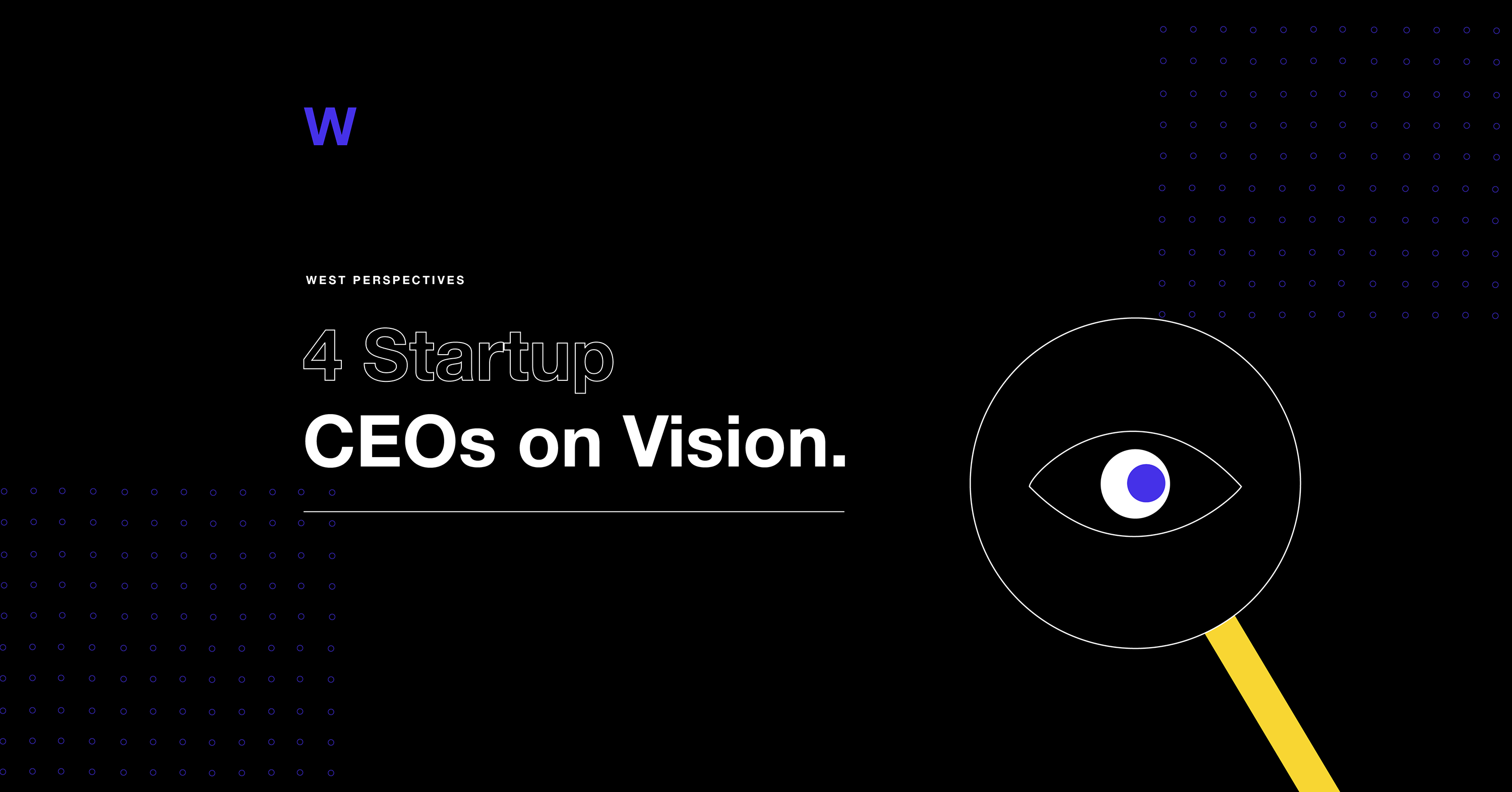West Portfolio CEOs on Playing Offense and Defense
Visionary and bold founders build for the future. The potential to shift the collective experience with a vision for a fairer, better, or faster future is what we love most about this industry. To achieve this vision, companies require leaders who can simultaneously play defense and offense, and COVID-19 has increased that necessity tenfold. In the past six months, leaders have been asked to manage cash and cut expenses while looking for new market opportunities in a world that is still spinning. In sports, most players excel at one or the other; early stage and startup CEOs must play both, at once.
With travel restricted for the foreseeable future, West recently converted our planned day-long June LP Summit into monthly zoom panels, offering our LPs a chance to hear directly from our portfolio companies on a specific topic. For our first session, we gathered portfolio startup CEOs TJ Farnsworth, CEO of Inception/Prelude Fertility, Jean Brownhill, CEO and co-founder of Sweeten, Denis Mars, CEO and co-founder of Proxy, and Lily Kanter, CEO and Founder of Boon Supply, to discuss how each are leading through unexpected challenges and embracing the changing landscape. Below are some of the key insights that these leaders shared about executing a robust response to the unexpected opportunities and challenges this year.
Trust Your Vision And Stick To It
Sweeten founder and CEO, Jean Brownhill, has always been adamant in her vision that the future of construction would be digital-first. In 2019, she doubled down on the company’s digital experiences. From payments to video conferencing in the app, the improved UX is now paying off exponentially. The average homeowner is 35 years old, expects seamless digital experiences in all aspects of their life, and Jean knew that home renovation was no exception. Even when faced with resistance from general contractors who were initially hesitant about the shift to digital, she prepared her company for this future vision.
“We’ve seen 3-to-5 years of tech innovation happen over night as far as the adaptive challenge of getting our general contractors to really embrace technology. Every ounce of resistance is now gone.” – Jean Brownhill, Sweeten
Lily Kanter’s Boon Supply experienced a similar acceptance of our fully digital world when schools closed. Founded to elevate fundraising and give organizers choice over the products sold and the charitable causes they championed, Lily believed in a future where school fundraising wasn’t constrained to paper forms and bake offs. The fundraising business is a massive industry that has been largely untouched by technology as individual school reps accounted for most of the business.
“We were holding on to the old legacy world. At this time we have an opportunity to leap frog and accelerate. So, I’m leaning a lot more on the vision that I have had and my gut on where to go. The old has slipped out from under us and we’re taking advantage of this opportunity to embrace what is truly new.” – Lily Kanter, Boon Supply
Find Opportunity by Leading the Response
Prelude Fertility, the fastest-growing network of fertility clinics in the United States, was required to close all in-person activities following guidelines to suspend fertility treatment for patients, putting a hold on the fertility journeys of thousands of hopeful families. As the largest network of fertility clinics across the country, this was not only detrimental to Prelude’s business, but also to the lives of so many of their patients.
So TJ Farnsworth founded and led an industry-wide coalition to reinstate the urgency and essential nature of these services. Together with other fertility clinics, experts, and thought leaders, he formed a new professional society to negotiate with and educate policy and government officials. His leadership reversed the policy and allowed clinics to re-open earlier than expected. TJ’s experience highlights the importance of going on the offensive to really make change happen.
Proxy––the provider of digital identities for the physical world––was in the midst of rapid expansion with corporate real estate providers. Companies like Doordash, Dropbox and Accenture all enable their employees, visitors and tenants to use their Proxy signals for frictionless smartphone-based access throughout the workplace. As offices closed, so did immediate opportunities for growth. However, founders Denis Mars and Simon Ratner have always stuck to their vision for a frictionless world and this larger opportunity is the reason West invested earlier this year. From our house and car keys to driver’s licenses, building doors, and gym fobs, Proxy is building a frictionless, personalized future, and is at the forefront of helping companies safely re-open with touchless experiences for employees.
Unlock Growth With A Strong Offense
This first half of 2020 was a stark reminder that sometimes the best plans must be scrapped and revisited. A vertical strategy shifts horizontal, a primary growth channel closes, a key account vanishes. By playing offense and defense, sticking to their founding visions, and leading when others sat back, these startup CEOs accepted the obstacles ahead and found alternate routes to keep marching forward.


No Comments.